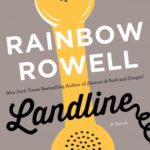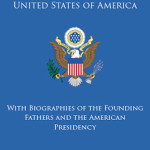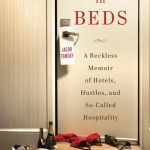Title: Iron John
Author: Robert Bly
Genre: Non-fiction
Publication Date: 1990
Purchase Price: $15.00 (although I borrowed it from the local library)
Seeing as this is the first installment of Book Challenge, I’m going to be winging it a bit–so just stick with me and we’ll see where this goes.
The Basics
In all honesty, I’m not sure exactly what I think of this book. I will say that I have a better opinion of it now that I’ve had a couple days to think it all over.
The book was slow going–mainly because of the writing style, I think. Most of the chapters began in language that I could understand, but the further in I got, the more obfuscated the writing became. I found myself skimming the pages for sentences that were written more clearly. I attribute this language issue with the author’s style: Bly is a poet, and as is the case with lots of high art, generally the more obscure and unintelligible a poem is, the “better” it is according to critics. I’m all for metaphors, but the reader needs to be able to understand them–otherwise the author is just wasting our time.
I did break my own 50-page rule, however. Normally if I’m not totally into a book by page 50, I drop it. But in this case I could feel that there was something he was trying to say, and it was flitting around in my head, just out of the corner of my eye. So after some rather generous skipping, I was pretty sure I’d gotten some idea of the main themes. But it still wasn’t gelling.
Fortunately, Google knows all. I was able to find a video interview of Robert Bly. The interview took place in 1990, around the time of the publication of Iron John. Once I got over being slightly weirded out at Bly’s poetry recitations (not to mention the fact that it looks like everyone is stuck in a 1975 time warp), I was actually able to glean some more information.
Essentially, the message of Iron John is that all the male initiation rites of previous centuries have been lost. As the Industrial Revolution came in, men had to begin leaving their homes in search of ways to support their families. This left boys mainly in the care of their mothers–and Bly asserts that a mother simply cannot replace a father. A boy can only learn how to be a man from the older men around him; therefore if there are no men, a boy remains a boy forever. Bly is known for using the old tales (particularly Greek mythology and fairy tales) to draw comparisons between traditional and contemporary times. The title of the book, Iron John, is the same title as an old fairy tale. The book is arranged around the story as a metaphor for what initiations once meant. I like metaphors, but sometimes a cigar is just a cigar. I got much more out of the interview video than I did out of the book–mainly because the interviewer wouldn’t let Bly speak in the same ridiculous high-handed language that he uses in the book.
My Thoughts
In societies that still perform initiation rites, it is not actually the father who does the initiating–rather, it is often uncles, a grandfather, or an unrelated older male. Once these models disappeared after the Industrial Revolution–families moving apart, divorce rate going up, etc.–it fell to the fathers to initiate the sons. But fathers remained firmly implanted in their offices, so the ideals of initiation began to falter and fade.
The author (citing the Jungian psychoanalyst Robert Moore) says that without the father’s presence, a hole will develop in the son’s psyche–and will subsequently fill up with demons. These demons cannot be killed, “only educated,” and it is through the process of initiation that said education occurs.
Sons receive (to quote Bly) a sort of “cellular food” from their fathers. An afternoon spent together in the garage building something, or working on a car, gives the son a chance to receive this “food” from the father. Daughters receive similar “food” from their mothers, but according to Bly the reverse cannot really happen (I don’t agree with him here; I think that girls learn from their father what a man should be, and boys learn from their mothers how to treat women).
Bly spends a lot of time talking about “the male mode of feeling.” The female mode of feeling apparently revolves around pain–both because women heal pain, and also experience the pain of devaluation. Meanwhile men’s mode of feeling is through grief: they “descend into ashes” before…becoming a male…I guess? It’s a little fuzzy, especially when you consider that “pain” and “grief” are often used synonymously. I think Bly is basically saying that boys, in order to compensate for an absent father, try to ascend through academic achievement, gaining wealth and power, etc., when really they should be descending to “ashes”: grieving and mourning so that they can move on in a healthy manner. But this is true for all people; you can’t truly recover from a tragedy or bad situation without first grieving and healing. But healing is the female mode of feeling, so somehow we’re just going in circles. Again.
The author talks a lot about the fact that men and women are different when it comes to feelings. Women are taught from the beginning to always express their feelings, and to always “talk it out.” Meanwhile, men are taught early not to show pain, not to talk about what they feel. According to Bly, this whole mess would be sorted out if boys simply spent lots of time with good ol’ dad…even though his father, having been raised in the same society, is likely to be just as stoic and unwilling/unable to talk about his feelings. Can’t sons learn such things from their mothers? After all, mothers have learned from toddlerhood how to talk about their feelings; shouldn’t boys go to the experts?
Bly also goes on extensively about “male mothers”–a concept I didn’t really understand until he used a much more normal word: mentor. He seems to think that only older males can be mentors, but I would argue that professors, bosses, and friends could be as well, as long as they are (to paraphrase the author) interested in the state of your soul.
The idea I understood the most (I think?) was that of the warrior. The author spends an entire chapter talking about how men need to “have the warrior” in order to do well. He’s not talking about a warrior in an antagonistic sense–a guy attacking others–but rather in the defensive sense. Then he starts talking about how the warriors guard a man’s boundaries, and if your warrior is weak then you’re weak too…and something about how men with weak inner warriors don’t stand up for themselves, take insults and abuse silently, etc. Like many of his other concepts, I start off understanding, and then the author gets too obtuse for me.
Which is a pity, because I just know there’s some bigger meaning lurking between the lines, and I can’t find it. Maybe if I keep the book for another week…
A Few [More?] Problems
The biggest issue I can see is simply a logistical one. Bly says that men should re-connect with their fathers. What if the man doesn’t know who his father is? What if the father is unwilling to even listen? What if the father is deceased? Then do the “demons” that have filled up the holes in the man’s psyche have to just stay there? I know that Bly talks about finding a mentor figure…but he also seems to say that nothing and no one can replace a father. So either way, the guy is stuck with his demons and holey psyche and stuff.
Bly doesn’t seem to be a chauvinist (which is what I was afraid he would turn out to be), but at the same time I can’t really be okay with the guy. He says over and over that it’s not women’s fault that all this nonsense is happening, but he keeps coming back to it anyway, with stuff like this:
“…your father is convinced that he is an inadequate human being. Women have been telling him that for 30 to 40 years. He doesn’t know how to talk, he can’t express himself, he doesn’t know what his feelings are.”
He isn’t blaming women for a man’s inability to talk, express himself/his feelings; but he is blaming women for shaming men into feeling inadequate–or that’s at least how it comes across to me. Then, of course, there’s the generalizations:
“…many people that we call ‘angry feminists’ are women who have only experienced the temperament of their fathers–they have never experienced the teaching. And their attacks on the patriarchy are really a turn attack on the fact that they don’t believe that there is any older males that have anything but this irritable temperament.”
I think that these statements would insult lots of feminists. My relationship with my own father is far from perfect, but I believe that I’ve gotten a mix of temperament and teaching from him, and I’m still a feminist. Plus, it just makes it seem like he thinks that if a woman is an “angry feminist,” she’s somehow…broken. It’s also really hard to ignore the creepy Freudian undertones when he talks about how a woman is going to look to her man for the “fathering” she didn’t get as a girl. I don’t know–it’s all a touchy subject. Maybe if I were to talk with him and get some further clarification it would make more sense, but overall I’m just uncomfortable with the things he says about women. It just feels like he thinks that women are inherently incapable of raising sons or doing well in relationships.
In both the book and the video interview, it also takes forever for Bly to start making some suggestions about how to solve/reverse the problems he’s been describing.* The suggestions are actually good ones: find a trustworthy male mentor. But if there are none…yea, he doesn’t mention that.
Bigger Questions
Okay, okay, I realize I’m wandering into snark mode. Despite my lack of understanding this book, I can see some larger themes/questions that apply to any reader.
From a purely historical perspective, I want to know if this problem is still as prevalent as it apparently was in 1990. Has the Mythopoetic men’s movement (as it’s called these days) gained momentum in the past 20 years? What’s changed, gotten worse/better, etc.?
Iron John laments constantly that we have lost contact with the old ways and stories. But why did we? Bly labels the Industrial Revolution as the turning point, but I think that if “the old ways” were really so useful to us, we’d have kept them around. For example, the author talks a lot about “Zeus energy,” (power taken for the sake/betterment of the community) and how it’s necessary for a man to be a good warrior. But Zeus is always portrayed as a womanizing, rude, childish creep. So really, just what characteristics is Bly hoping to keep around?
But the biggest question is one that has reverberations that extend much farther than Robert Bly and Iron John:
What does it mean to be a man?
Final Thoughts
In some ways, I think that Robert Bly has hit on something meaningful; there is a shortage of role models today, for boys and girls (and men and women). But the genders are not two totally separate spheres–we do not move in vacuums away from each other. Even the author cannot make us do so in his book: even though he consistently states that it’s not women’s fault that this problem has occurred, he keeps mentioning them within the context of feeding into the problem. He hesitates to call what he’s doing a “men’s movement,” but I don’t believe him for a second. I believe that everything he talks about–being able to grieve, connecting with the inner warrior, all of this applies to women as well. I got great confirmation of my opinion near the end of the video interview. The interviewer asked some of the men if they are confused about what it means to be a man today, or confused about what society expects of them as men. One response:
“Well, I’ve gotten a whole [lot of] contradictory signals in my life…It’s to be the Superman and Superwoman; to be the best parent, to be the best child, to be the best person, to be everything to everybody, and it still never seems to be good enough.”
The above quote does not constitute merely a “men’s problem,” but rather humanity’s problem.
I can’t pretend that I understand what it’s like to be a man, so perhaps my critique of this book is doomed to be biased. It was certainly a mental stretch to try and understand it all.
Final Thoughts
I enjoy being challenged. That being said, sometimes a challenge is too challenging, and that tends to leave me feeling like dolt. I’ve tried to analyze and get to the root of Robert Bly’s messages in Iron John, but I still feel as if I’ve failed (some part of me whispers that it’s because I’m missing a Y chromosome).
But I do want to know what you guys think. Is there something I was trying to explain that you didn’t quite get? How can men and women endeavor to understand and help each other? What can we do that will lead to fully actualized men and women? What does it really mean to be a man? To be a woman? Thoughts?
*Looking back, it could have seemed longer because every page/minute was so densely packed with information that I didn’t understand, and kept having to go back over it.
Challenge Results
Thanks for tuning in to see the results of Book Challenge #1! I hope I enjoyed getting out of my reading “comfort zone,” so I’ll definitely be doing another challenge someday. This coming Sunday we’ll be back to a normal schedule: book review Sunday and total randomness on Wednesday. Happy reading!






